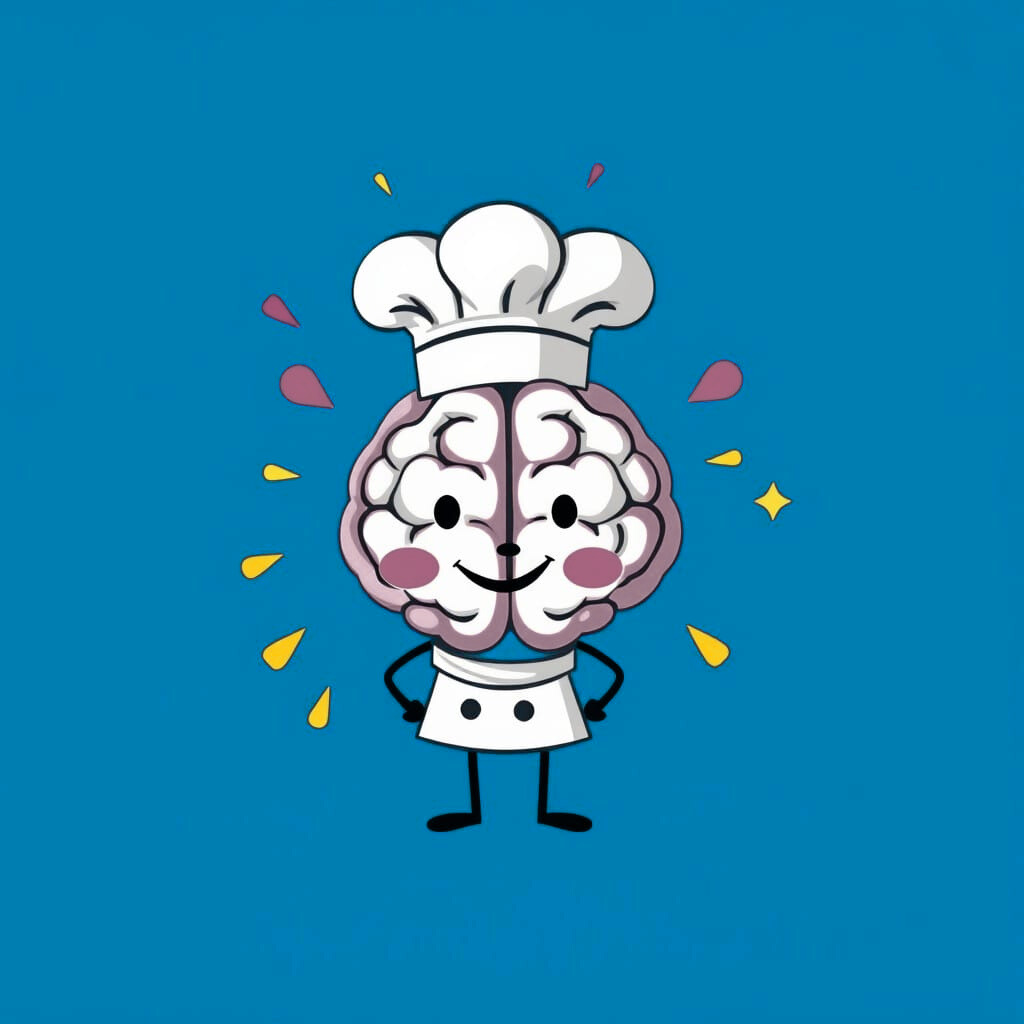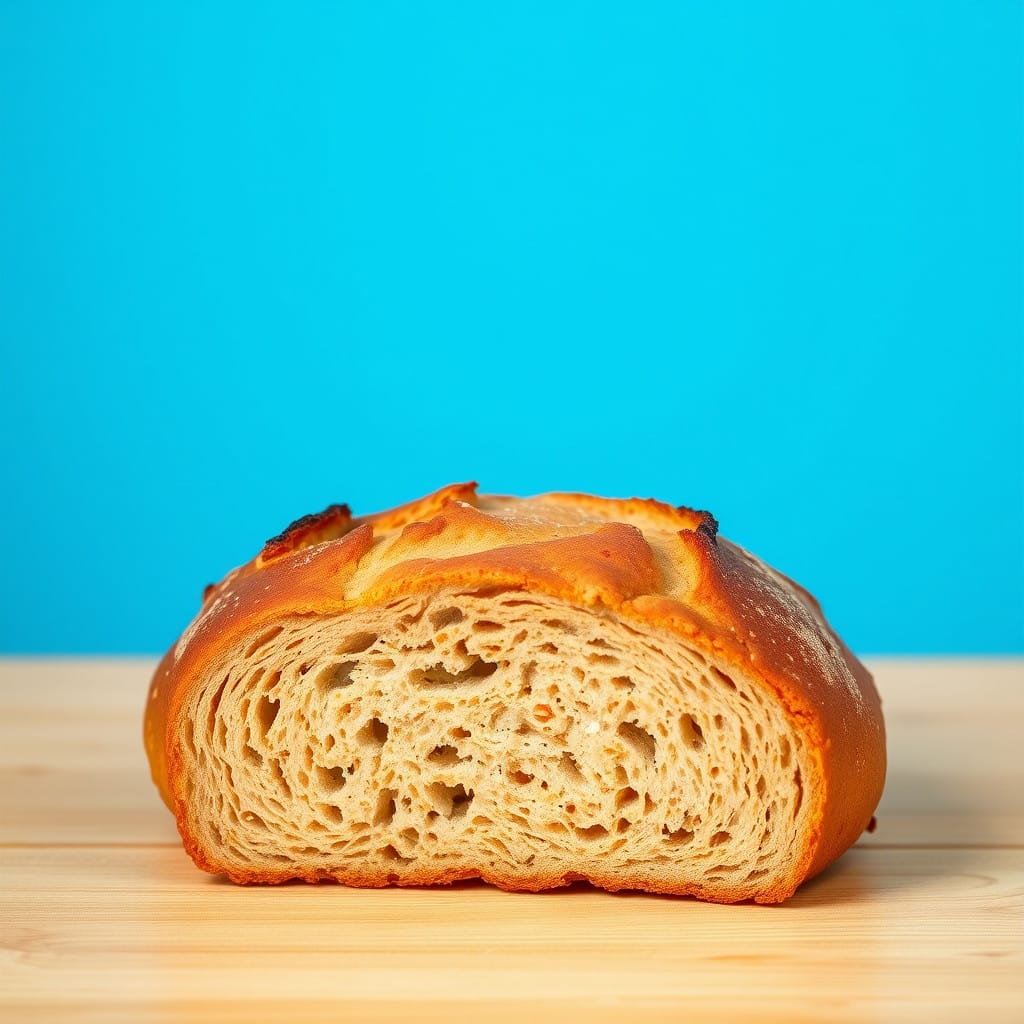Imagine a loaf of warm, freshly baked bread. It’s comforting, nourishing, and deeply satisfying. But without the magic of yeast, you’d have no bread. Instead, you’d have a dense lump of flour and water – no rise, no fluffiness, no joy.
It turns out, happiness is a lot like bread. You can’t create it without a few key ingredients, and those ingredients are probably not what you imagine they are. Instead of money, fame, & true love, think B12, magnesium, and amino acids.
The Science Behind Happiness: Your Brain Needs Ingredients
Your brain & gut work together — like a master chef and the sous chef — constantly cooking up the chemical signals that shape your mood, energy, and outlook on life. Dopamine and serotonin are two of the star players in this recipe for happiness. They help regulate mood, motivation, and overall well-being.
But your brain can’t just conjure them out of thin air – it needs raw materials. These raw materials are the nutrients you get from the food you eat: ingredients like amino acids, vitamins B6 and B12, and minerals such as magnesium and zinc. Without these, your body can’t produce enough of the neurotransmitters that make happiness possible.
Think about it: you wouldn’t expect a loaf of bread to rise if you didn’t add yeast. Similarly, you can’t expect your mood to rise if your body is missing the fundamental building blocks it needs to thrive.

Sleep, Movement, and Nutrition: The Flour, Water, and Yeast of Happiness
Expanding the metaphor, the flour and water in this bread-making process might be the basics of self-care: sleep and movement. Without adequate sleep, your body and brain don’t get the chance to repair, reset, and prepare for the next day. And exercise isn’t just about staying healthy – it’s a critical part of being happy, too. Physical activity stimulates the release of endorphins and helps regulate the stress hormone cortisol.
But even with good sleep and plenty of activity, your happiness bread won’t rise without that crucial yeast: the right nutrients. A balanced diet filled with whole, unprocessed foods – fruits, vegetables, whole grains, lean proteins, and healthy fats – ensures that your body has the ingredients to produce dopamine, serotonin, and other mood-boosting chemicals.
Why whole foods? Why not just take supplements? The unsung hero of this happiness recipe is fiber. Fiber gives your body a chance to actually absorb the nutrients you need, instead of letting them pass right through your digestive system. (If you’ve ever heard supplements referred to as “expensive urine,” that’s why.) Fiber also supports gut health, which is closely linked to mental health through the gut-brain connection. A healthy gut helps regulate the production of serotonin, a significant portion of which is made in your digestive system.
Supplements might seem like a shortcut, but they can’t replicate the synergy of real, whole foods. Whole foods provide not only the vitamins and minerals your body needs but also the fiber and phytonutrients that make those nutrients bioavailable. It’s like trying to bake bread without salt – it might work in a pinch, but the result won’t be nearly as satisfying or nourishing.
Bake Your Own Happiness Bread
Of course, once you’ve mixed up your dough and let it rise, you still don’t have bread. Whether you’re using a fancy bread machine or a no-knead recipe, your bread has to bake before it becomes delicious.
In this metaphor for happiness, the other ingredients of a fulfilling life – acceptance, awareness, appreciation, anticipation, community, curiosity, family, fun, generosity, gratitude, kindness, love, meaning, mindfulness, music, playfulness, purpose, nature, resilience, spontaneity, and surprise – are like the oven in which you bake your bread. They create the environment where happiness can develop and thrive.
But here’s the catch: unless you start with the basics – sleep, movement, and a nutrient-rich diet – your oven is just going to make your kitchen hot. The oven can’t bake bread without the raw dough. Happiness doesn’t start in your environment; it begins in your body. Choosing happiness means choosing to eat foods that will let your body create the ingredients of happiness.

